Bunk beds are highly valued by parents as they offer a practical space-saving solution. These beds can accommodate two or three children, making them perfect for kids who share a bedroom. Additionally, bunk beds are commonly used by adults in dorm rooms and hostels.
When selecting a new mattress for a bunk bed, there are several factors to consider. Most bunk beds can accommodate twin mattresses, twin XL, or full-size mattresses, but larger sizes will be too wide and long for the bunks. It is often recommended to opt for low-profile mattresses. Thick mattresses can be too heavy for bunk beds and may pose safety risks, especially on upper bunks.
Below, we have compiled a list of the best bunk bed mattress models available today based on feedback from verified owners, as well as our own research and testing. Our guide also covers the design and construction of bunk beds, along with the mattress types that are most suitable for them.
Best Mattresses for Bunk Beds
| Brand | Best For | ||
|---|---|---|---|
| 1 Editor’s Choice |

|
Overall | Shop Now |
| 2 |

|
Organic | Shop Now |
| 3 |

|
Memory Foam | Shop Now |
| 4 |

|
Low Profile | Shop Now |
| 5 |
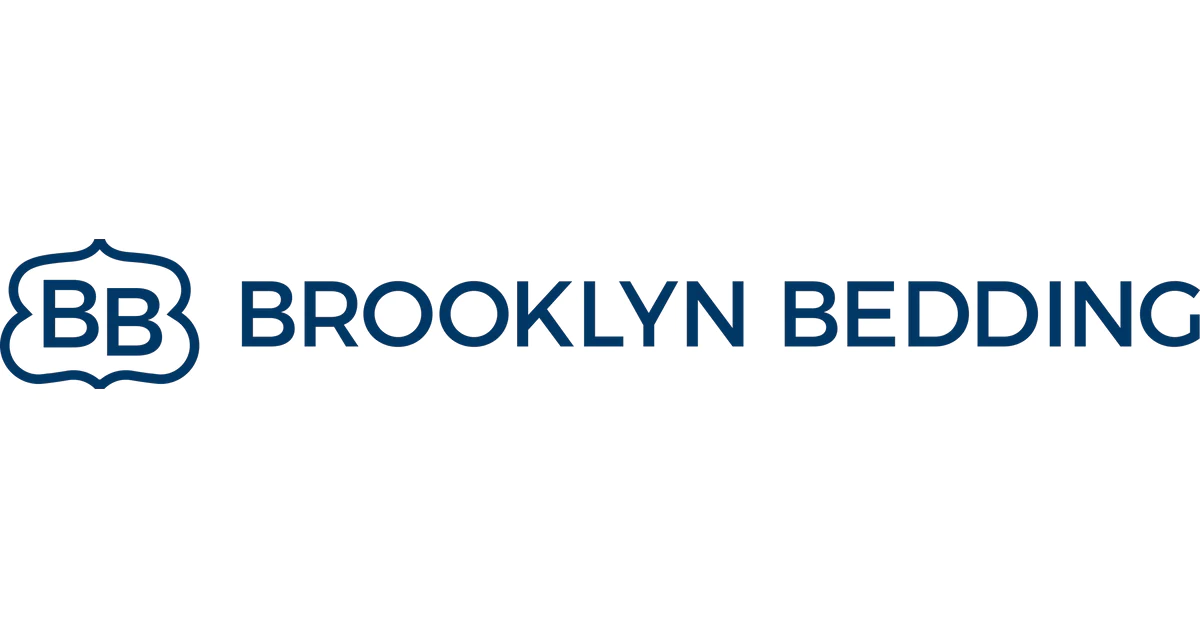
|
Hybrid | Shop Now |
| 6 |

|
Value | Shop Now |
| 7 |

|
Side Sleepers | Shop Now |
| 8 |
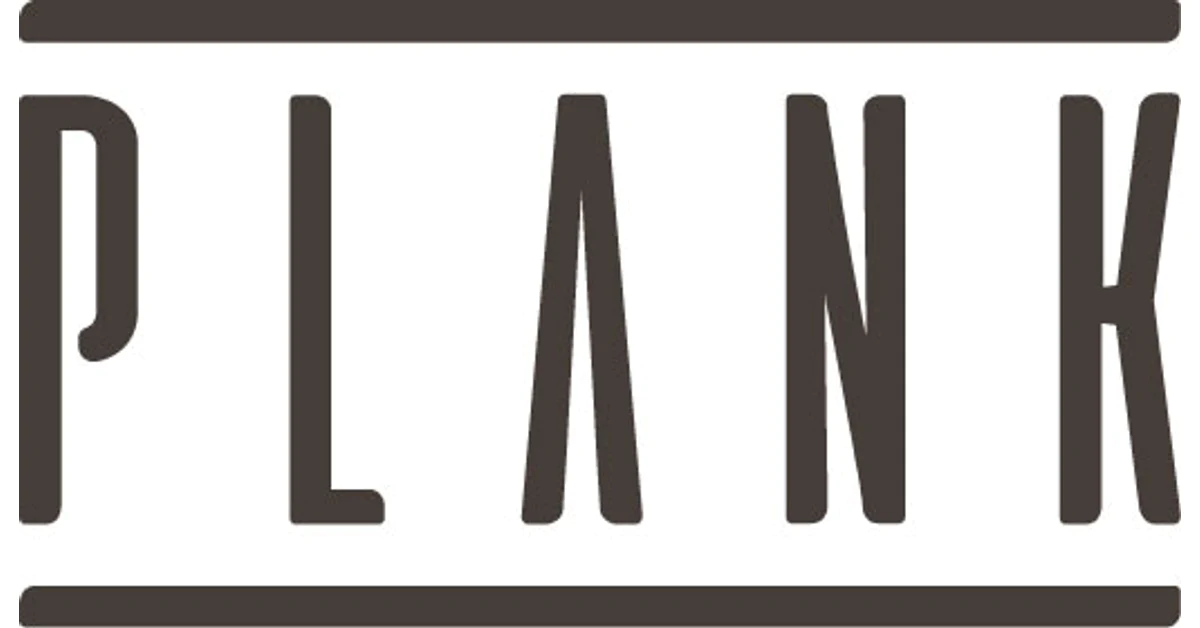
|
Firm | Shop Now |
| 1 |
|---|
|
Editor’s Choice
Best For:
Overall
|
| 2 |
|
Best For:
Organic
|
| 3 |
|
Best For:
Memory Foam
|
| 4 |
|
Best For:
Low Profile
|
| 5 |
|
Best For:
Hybrid
|
| 6 |
|
Best For:
Value
|
| 7 |
|
Best For:
Side Sleepers
|
| 8 |
|
Best For:
Firm
|
Tips On Choosing The Best Bunk Bed Mattress
Size
Most bunk beds available today are designed to accommodate twin, twin XL, or full-size mattresses. These sizes are typically suitable for a single sleeper and may be too narrow to comfortably accommodate two or more individuals. It is important to carefully review the specifications of your bunk bed to determine the appropriate mattress size for each individual bunk.
Thickness
The right bunk bed mattresses are typically recommended to be thinner than regular mattresses. The reason for this is twofold. First, thinner mattresses are generally lighter in weight, which is beneficial for bunk beds as it reduces the overall load on the structure. Second, thinner mattresses help ensure safety, particularly for upper bunks, by minimizing the risk of individuals sleeping on the top bunk being too close to the ceiling.
It is generally recommended to aim for a mattress thickness of 6 to 8 inches for bunk beds, although the ideal thickness may vary depending on the specific design of the bunk bed. This range provides a good balance between comfort and safety.
Mattress Type
When selecting a mattress for your bunk bed, it’s important to consider different types of mattresses available on the market. Here are some popular mattress types to consider: innerspring, memory foam, latex, and hybrid.
- Innerspring Mattress: Innerspring mattresses are constructed with a network of steel coils that provide support and durability. They offer good airflow, which can help with temperature regulation. Innerspring mattresses are known for their bounciness and responsive feel. They tend to provide a firmer sleeping surface and are a popular choice for those who prefer a traditional mattress feel.
- Memory Foam Mattress: Memory foam mattresses are made of layers of foam that contour to the shape of your body, providing excellent pressure relief and support. They are known for their ability to isolate motion, making them a great choice for bunk beds where movement on one bunk is less likely to disturb the other sleepers. Memory foam mattresses often have different firmness levels available, allowing you to choose based on your preference.
- Latex Mattress: Latex mattresses are made from natural or synthetic latex foam. They offer a responsive and buoyant feel, similar to memory foam but with a bit more bounce. Latex mattresses are known for their durability, breathability, and hypoallergenic properties. They provide excellent support and are available in different firmness options.
- Hybrid Mattress: Hybrid mattresses combine the support of innerspring coils with the pressure relief of foam or latex layers. They often have a pocketed coil system that reduces motion transfer and provides targeted support. Hybrid mattresses offer a balance of comfort, support, and breathability. They are a suitable option for those who prefer the benefits of both innerspring and foam/latex mattresses.
When choosing the mattress type for your bunk bed, consider your preferences for support, firmness, and motion isolation. Each mattress type has its own unique characteristics, so it’s important to test them out or read reviews to determine which one would be the best fit for you or your children’s sleep needs.
Support and Firmness
When choosing a mattress for a bunk bed, it is crucial to consider the support and firmness levels to ensure a comfortable and restful sleep, especially for children and teenagers. Here are some important factors to keep in mind:
- Adequate Support: The mattress should provide sufficient support to promote proper spinal alignment and prevent discomfort. This is particularly important for growing children and teenagers. Look for mattresses that offer good support to keep the body in a neutral position and alleviate pressure points.
- Personal Preferences: Consider personal preferences regarding mattress firmness. Factors such as weight, sleeping positions, and individual comfort preferences can influence the ideal firmness level. Some people prefer a softer feel, while others may find a firmer surface more comfortable. It’s important to find the right balance that suits your individual needs.
- Weight Distribution: Heavier individuals may require a firmer mattress to prevent excessive sinking and maintain proper support. Lighter individuals may find softer mattresses more suitable. Consider the weight of the sleepers who will be using the bunk bed and choose a mattress that can adequately support them.
- Sleeping Positions: Different sleeping positions may require varying levels of firmness. Side sleepers generally benefit from a slightly softer mattress that cushions the shoulders and hips. Back and stomach sleepers typically find better support and alignment on a firmer surface. If the bunk bed will be used by individuals with different sleeping positions, opting for a medium-firm mattress can be a safe compromise.
In general, medium-firm mattresses are a popular choice as they offer a balance between comfort and support. They tend to provide adequate support for most sleepers and accommodate different sleeping positions. However, personal preference and individual needs should ultimately guide the decision-making process. It’s always a good idea to test the mattress or look for detailed reviews to ensure it meets your specific requirements.
Safety
When selecting a mattress for a bunk bed, it’s important to prioritize safety features to ensure a secure and comfortable sleeping environment. Here are some safety considerations to keep in mind:
- Non-Slip Bottom: Look for a mattress with a non-slip or anti-skid bottom surface. This feature helps to prevent the mattress from shifting or sliding around on the bunk bed frame. It enhances stability and reduces the risk of accidents caused by a mattress moving out of place.
- Low Motion Transfer: Choose a mattress with good motion isolation properties. This means that movements on one bunk, such as tossing and turning or getting in and out of bed, won’t be felt as much on the other bunk. A mattress with low motion transfer helps minimize disturbances between sleepers, promoting uninterrupted sleep.
- Safety Certifications: Check if the mattress has any safety certifications or endorsements. Look for certifications such as CertiPUR-US, which ensures that the mattress meets specific standards for content, emissions, and durability. This can provide peace of mind regarding the mattress’s safety and quality.
- Proper Fit and Size: Ensure that the mattress fits the bunk bed properly. It should align with the bunk bed frame and not leave any significant gaps or spaces that could pose a safety hazard, especially for younger children. Follow the manufacturer’s guidelines or specifications regarding the appropriate mattress size for the bunk bed.
By considering these safety features, you can choose a mattress that provides a stable and secure sleeping surface, minimizes disturbances between sleepers, and meets safety standards for use in bunk beds.
Durability and Quality
Durability and quality are crucial factors to consider when choosing a mattress for a bunk bed. Here are some tips to help you find a mattress that is well-constructed and made from high-quality materials:
- Construction: Look for mattresses that are constructed with high-quality materials and have solid craftsmanship. Pay attention to details such as reinforced edges and sturdy stitching, as these contribute to the overall durability of the mattress. A well-constructed mattress is more likely to withstand the wear and tear associated with daily use in a bunk bed.
- Material Quality: Consider the quality of the materials used in the mattress. High-density foam, durable coils, and high-quality latex are examples of materials that are known for their longevity. Read product descriptions and specifications to get an idea of the materials used and their durability.
- Customer Reviews: Read customer reviews and feedback to gain insights into the durability of the mattress you’re considering. Look for reviews from verified buyers who have used the mattress in a bunk bed setup. Pay attention to any mentions of sagging, durability issues, or long-term performance. Genuine customer experiences can provide valuable information regarding the mattress’s durability.
- Recommendations and Reputation: Seek recommendations from trusted sources such as friends, family, or reputable mattress review websites. Look for mattress brands with a reputation for producing durable and high-quality products. Brands that offer warranties or guarantees on their mattresses often indicate their confidence in the product’s durability.
By researching and considering factors such as construction, material quality, customer reviews, and brand reputation, you can make a more informed decision about the durability and quality of the mattress. Remember, investing in a durable mattress ensures long-term satisfaction and value for your bunk bed setup.
Hypoallergenic Properties
For individuals with allergies or sensitivities, it’s important to consider mattresses with hypoallergenic properties or resistance to allergens. Here are some points to keep in mind:
- Hypoallergenic Materials: Look for mattresses that are made with hypoallergenic materials. These materials are less likely to trigger allergic reactions or sensitivities. Examples of hypoallergenic materials include natural latex, organic cotton, and bamboo fibers. These materials are often resistant to dust mites, mold, and other common allergens.
- Allergen Resistance: Some mattresses are specifically designed to resist allergens. They may have features such as tightly woven fabric covers or protective barriers that prevent the penetration of dust mites, pet dander, pollen, and other allergens. These mattresses can help create a cleaner and healthier sleep environment for individuals with allergies.
- Certifications: Look for mattresses that have certifications or endorsements indicating their hypoallergenic properties. Certifications such as OEKO-TEX Standard 100 or Global Organic Textile Standard (GOTS) ensure that the mattress has been tested for harmful substances and meets specific criteria for allergen resistance.
- Cleaning and Maintenance: Consider mattresses that are easy to clean and maintain. Removable and washable mattress covers can help in reducing allergens, as regular cleaning can remove dust mites and other allergenic particles. Some mattresses also have antimicrobial properties that inhibit the growth of bacteria, mold, and other allergens.
It’s important to note that individual sensitivities can vary, so it’s a good idea to consult with a healthcare professional or allergist if you have specific concerns or allergies. They can provide personalized recommendations based on your specific needs and help you choose a mattress that is suitable for your allergies or sensitivities.
Budget
When searching for a bunk bed mattress, it’s important to determine your budget range beforehand. Here are some considerations to keep in mind when balancing quality, comfort, and affordability:
- Set a Budget: Determine how much you are willing to spend on a bunk bed mattress. Having a budget in mind will help narrow down your options and prevent overspending. Remember to consider the cost of purchasing multiple mattresses if you have multiple bunks.
- Value for Money: While it’s important to consider affordability, also consider the long-term value of the mattress. A higher-quality mattress may have a higher upfront cost but could offer better durability, comfort, and longevity. Investing in a mattress that will last longer can save you money in the long run, as you won’t have to replace it as frequently.
- Prioritize Comfort and Support: Quality and comfort should not be compromised solely for the sake of affordability. A mattress that provides proper support and comfort is essential for a good night’s sleep. Look for mattresses that offer a balance between price and comfort, ensuring that you and your family will have a comfortable and restful sleep.
- Research and Compare: Take the time to research different mattress options and compare prices, features, and customer reviews. Look for sales or promotions that can help you get a higher-quality mattress at a more affordable price. Additionally, consider purchasing from reputable brands or retailers known for providing good value for money.
Remember that a bunk bed mattress is an investment in your sleep quality and comfort. While it’s important to stick to your budget, it’s also worth considering the long-term benefits and value that a higher-quality mattress can provide. By finding the right balance between quality, comfort, and affordability, you can make a wise investment in your bunk bed setup.
Warranty and Return Policy
When purchasing a bunk bed mattress, it’s crucial to check the manufacturer’s warranty and return policy. Here are some key points to consider:
- Manufacturer’s Warranty: Review the details of the manufacturer’s warranty for the mattress. The warranty typically covers manufacturing defects and may vary in duration, ranging from a few years to a decade or more. Pay attention to what is specifically covered under the warranty, such as sagging, coil integrity, or foam deterioration. Understanding the warranty terms will give you an idea of the level of protection and support you can expect from the manufacturer.
- Return Policy: Familiarize yourself with the mattress retailer’s return policy. This policy outlines the terms and conditions for exchanges or returns if you’re unsatisfied with the mattress. Pay attention to details such as the timeframe for returns, any associated fees or costs, and whether the mattress needs to be in its original condition or packaging. Knowing the return policy will provide peace of mind in case the mattress doesn’t meet your expectations.
- Terms and Conditions: Take the time to thoroughly read the terms and conditions of both the warranty and return policy. Look for any specific requirements or limitations, such as using a mattress protector or adhering to weight limits. Understanding the terms and conditions will help you navigate any potential issues or concerns that may arise.
- Customer Support: Consider the reputation and reliability of the manufacturer’s customer support. It’s important to have responsive and helpful customer service in case you need assistance with warranty claims or return processes. Look for reviews or experiences from other customers to gauge the manufacturer’s level of customer support.
By carefully reviewing the warranty and return policy, you can ensure that you are aware of your rights and options in the event of any issues with the mattress. It’s always a good idea to clarify any questions or concerns with the retailer or manufacturer before making your purchase.
Personal Preferences
When choosing a bunk bed mattress, it’s important to factor in individual preferences and requirements. Here are some tips to help you find the right fit:
- Consider Personal Preferences: Take into account your own preferences and those of the sleepers who will be using the bunk bed. Factors such as desired firmness, mattress type, and specific needs (e.g., back support, pressure relief, temperature regulation) should be considered. Discuss with the sleepers their comfort preferences to ensure everyone’s needs are met.
- Test Different Mattress Types: If possible, try out different mattress types before making a decision. Visit mattress showrooms or retail stores that allow testing. Lie down on various mattresses and see how they feel in terms of comfort, support, and pressure relief. This hands-on experience can help you identify which type of mattress suits you best.
- Explore Firmness Options: Different individuals may have varying preferences when it comes to mattress firmness. Some prefer a softer feel, while others opt for a firmer surface. Consider the weight and sleeping positions of the sleepers, as well as any specific comfort requirements. Keep in mind that medium-firm mattresses generally tend to suit a wide range of sleepers.
- Read Reviews and Seek Recommendations: Read customer reviews and seek recommendations from trusted sources. Real-life experiences can provide valuable insights into the comfort, durability, and overall satisfaction of different mattress models. Look for reviews from individuals who have used the mattress in a bunk bed setup, if possible.
- Utilize Trial Periods: If purchasing online, check if the mattress comes with a trial period. Many mattress companies offer a trial period during which you can sleep on the mattress and return it if you’re not satisfied. This allows you to test the mattress in your own home and determine if it meets your comfort requirements.
By considering personal preferences, testing different mattress types, exploring firmness options, reading reviews, and utilizing trial periods, you can make a more informed decision and increase the chances of finding a mattress that provides optimal comfort and satisfaction for the sleepers in the bunk bed.
Conduct thorough research, read reviews, and compare options to make an informed decision
To make an informed decision when selecting a bunk bed mattress, conducting thorough research, reading reviews, and comparing options is essential. Here’s a step-by-step approach to help you:
- Research: Start by researching different mattress types, features, and brands. Understand the characteristics and benefits of various mattress materials such as innerspring, memory foam, latex, and hybrid. Familiarize yourself with terms related to firmness, support, and other factors that affect comfort.
- Read Reviews: Look for customer reviews and feedback on different mattress models. Websites, forums, and social media platforms can provide valuable insights into people’s experiences with specific mattresses. Pay attention to both positive and negative reviews to get a balanced perspective.
- Compare Features: Compare the features of different mattresses. Consider factors such as mattress size, thickness, hypoallergenic properties, motion isolation, and durability. Evaluate how these features align with your specific requirements and preferences.
- Consider Price and Value: Compare the prices of different mattresses within your budget range. Keep in mind that the cheapest option may not always provide the best value or long-term durability. Consider the overall value, taking into account factors such as quality, comfort, durability, and warranties.
- Check Brand Reputation: Research the reputation and credibility of mattress brands. Look for established brands with positive customer feedback and a history of manufacturing reliable and high-quality mattresses. Brands known for their commitment to customer satisfaction and after-sales support can provide added peace of mind.
- Visit Retailers or Showrooms: If possible, visit mattress retailers or showrooms to try out mattresses in person. Lie down on different models to gauge their comfort and firmness levels. This hands-on experience can give you a better sense of how each mattress feels and help you make a more informed decision.
- Consider Recommendations: Seek recommendations from friends, family, or trusted sources who have experience with bunk bed mattresses. They can provide insights and firsthand recommendations based on their own experiences.
By conducting thorough research, reading reviews, and comparing different options, you can gather valuable information to make an informed decision when selecting a bunk bed mattress. Remember to consider factors such as comfort, support, durability, and budget while keeping your personal preferences and specific requirements in mind.
Our Top Picks for Best Bunk Bed Mattress
Best Overall: Helix Kids
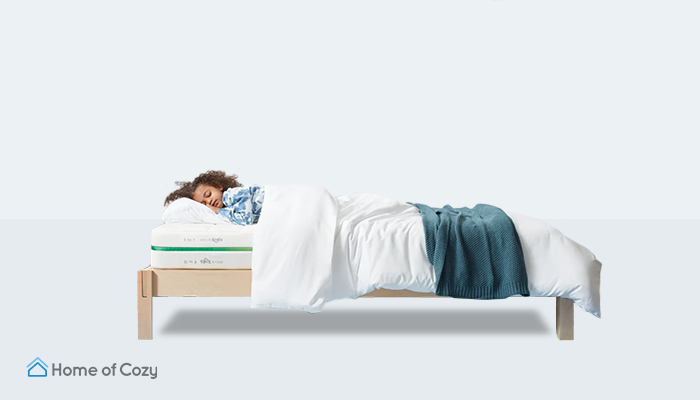
- Price Range: $740-$990.00
- Mattress Type: Hybrid
- Firmness: 4.5/10 and 6.5/10
- Trial Length: 100 Night Sleep Trial
- Warranty: 10 Year Limited Warranty
What I Loved
I loved that the mattress is water-repellent quilted layer which makes spills much easier to clean up. It’s non-toxic and hypoallergenic, making it ideal for children plus it has a bouncy innerspring mattress making it easy to move around.
What I Didn’t Love
The mattress might not be supportive enough for children over the age of 12, and you might want to look for a firmer mattress. The price is also a bit steep, but they do have frequent discounts and sales, making them more affordable.
Best Organic: Birch Kids
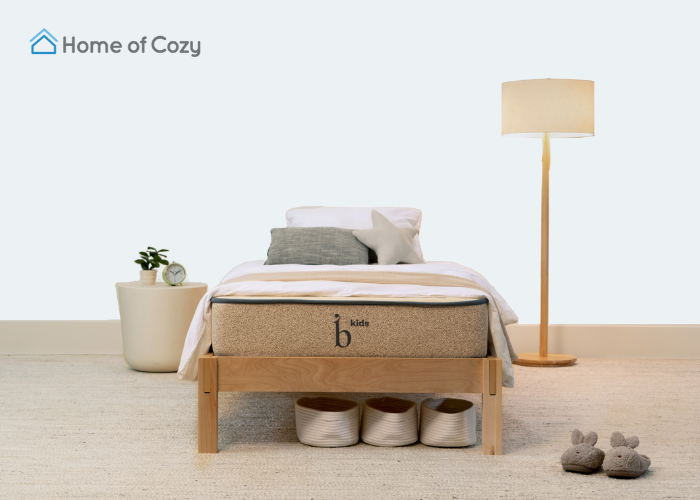
- Price Range: $1123.80-$1373.80
- Mattress Type: Hybrid
- Firmness: 4.5/10 and 6.5/10
- Trial Length: 100 Night Sleep Trial
- Warranty: 10 Year Limited Warranty
What I Loved
I love that this bed in a box is flippable, with a softer side for older children and a firmer side for younger children. This bed is both safe and sustainable, made with both natural and organic materials for safe sleep. It also is a GOTS-certified product showing that it’s ethically sourced and produced.
What I Didn’t Love
There are only two choices for firmness levels, and that’s either 4.5 out of 10 or 6.5 out of 10. While some customers appreciate the medium-firm feel of Birch Kids mattresses, others may find them too firm or not soft enough for their comfort preferences. Personal preferences for mattress firmness can vary, so it’s essential to consider individual comfort requirements.
Best Memory Foam: Bear Cub
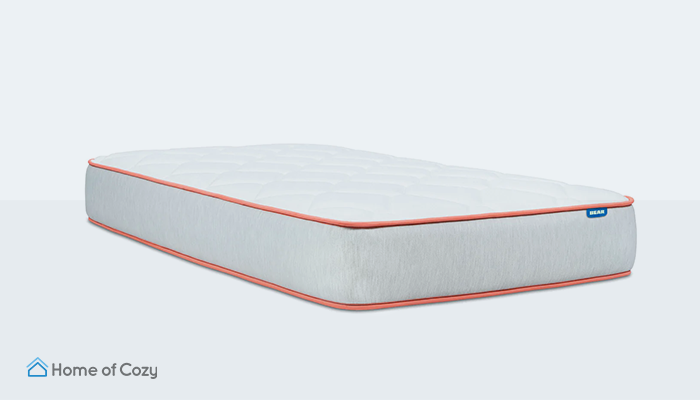
- Price Range: $695 -$845
- Mattress Type: Hybrid
- Firmness: 7/10
- Trial Length: 120 Night Sleep Trial
- Warranty: Lifetime Warranty
What I Loved
This is a great mattress for children that sleep hot or have sharp pressure points. It’s also great for combination sleepers. The cooling cover traps heat away from the body, leaving you feeling cool and comfortable throughout the night.
What I Didn’t Love
With a firmness level of 7 it may be too firm for older sleepers who enjoy a bit of cushioning when they sleep.
Best Low Profile: Dreamfoam Essential
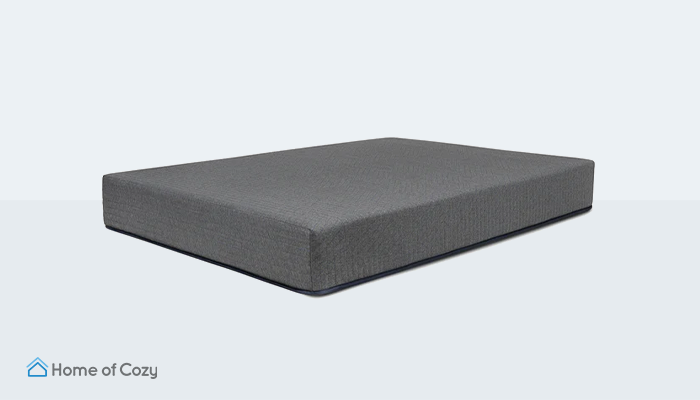
- Price Range: $274-$449
- Mattress Type: Memory Foam
- Firmness: 6” is 8.5/10, 8” is 6.5/10, 12” is 4.5/10, 14” is 3.5/10
- Trial Length: 120 Night Sleep Trial
- Warranty: 10 Year Warranty
What I Loved
The mattress has a breathable cover and cooling gel memory foam, making it a great choice for hot sleepers. We also love that the mattress offers a variety of firmness levels so you can choose which mattress is best for you.
What I Didn’t Love
This mattress may not be supportive enough for heavier people, and the taller models are too tall for a loft bed. Stomach sleepers may not like this bed because it doesn’t offer enough support and instead hugs you in and cushions your body.
Best Hybrid: Brooklyn Essential
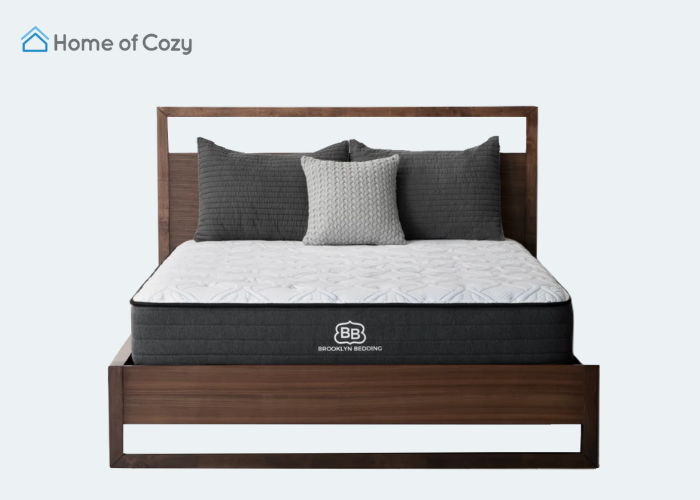
- Price Range: $532-$799
- Mattress Type: Hybrid
- Firmness: 6/10
- Trial Length: 120 Night Sleep Trial
- Warranty: 10 Year Warranty
What I Loved
The motion isolation is exceptional. If you’re using the bed for the lower bunk and have multiple kids sleeping on it, they are less likely to disturb each other when they move. The Brooklyn Essential also has cooling properties allowing for temperature regulation during sleep.
What I Didn’t Love
This mattress might have slightly weaker edge support when compared to some of our other models. If you tend to use the edge of the mattress, you may find that they lack firmness.
Best Value: Leesa Kids

- Price Range: $499-$599
- Mattress Type: Memory Foam
- Firmness: 7/10
- Trial Length: 100 Night Sleep Trial
- Warranty: 10 Year Warranty
What I Loved
This mattress has great pressure relief and contouring for side sleepers. It’s firm enough for back and stomach sleepers too.
What I Didn’t Love
Like most memory foam mattresses, there isn’t a lot of edge support so you might find yourself sinking if you use the edge of the bed for sitting on. The bed is also only available in one firmness option.
Best For Side Sleepers: Nolah Original Hybrid
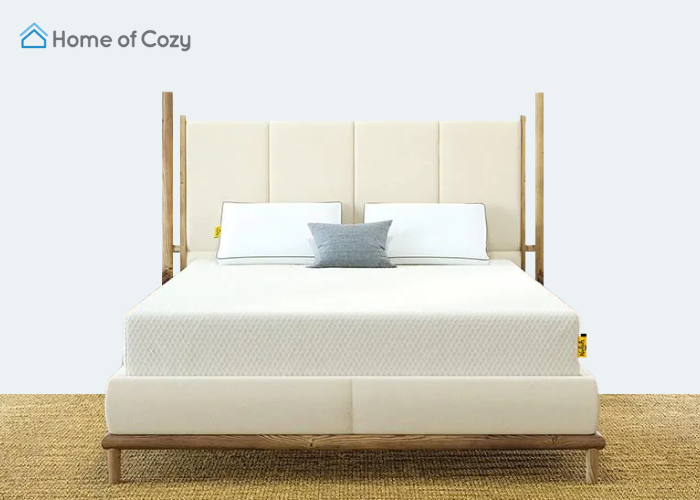
- Price Range: $999-$2,398
- Mattress Type: Memory Foam
- Firmness: 5.5/10
- Trial Length: 120 Night Sleep Trial
- Warranty: Lifetime Warranty
What I Loved
This bed offers you two options the foam and the foam hybrid. We love that the mattress offers great pressure relief for back sleepers and side sleepers around the hips and shoulders.
What I Didn’t Love
The mattress is 10” thick, so it might be too high for some top bunks and go above the guardrail, but it’s still a great choice for bottom bunks.
Best Firm Mattress: Plank Firm
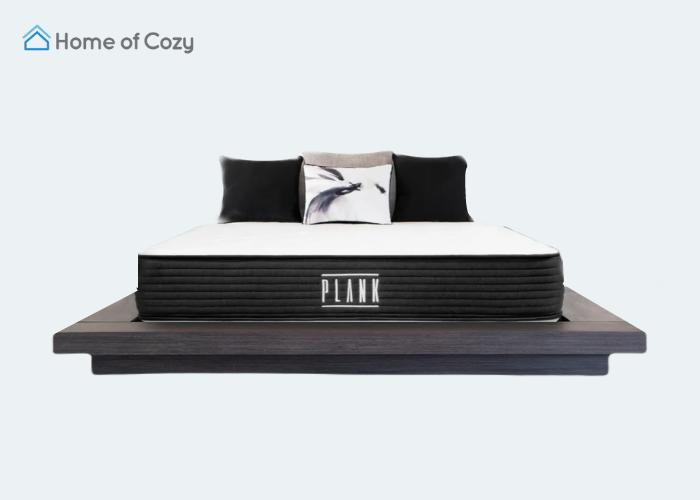
- Price Range: $749-$1,532
- Mattress Type: Memory Foam
- Firmness: 8/10 or 10/10
- Trial Length: 120 Night Sleep Trial
- Warranty: 10 Year Warranty
What I Loved
I loved that the mattress features cooling technology, including a breathable cover and cooling gel-infused memory foam. These features help dissipate heat and regulate temperature, preventing overheating during sleep. This mattress is also an excellent choice for back sleepers.
What I Didn’t Love
The Plank Firm mattress is specifically designed for individuals who prefer an extremely firm sleep surface. If you prefer a softer or more medium-firm feel, this mattress may not be suitable for you. If you like a firm mattress with a bit of cushioning, you can flip the bed, and it does offer a comfort layer.
Conclusion
When it comes to selecting the best mattress for bunk beds, it’s important to consider factors like size, thickness, and comfort. Finding a mattress that provides adequate support and fits within the bunk bed frame is crucial for a comfortable sleep experience. If you’re looking for recommendations on the top toddler mattresses, Home of Cozy has compiled a helpful article on “The 14 Most Comfortable and Safest Toddler Mattresses of 2023.” This resource will guide you through various options, highlighting their features and benefits to ensure you choose the perfect mattress for your child. With the right mattress, you can maximize both comfort and functionality of your bed.

